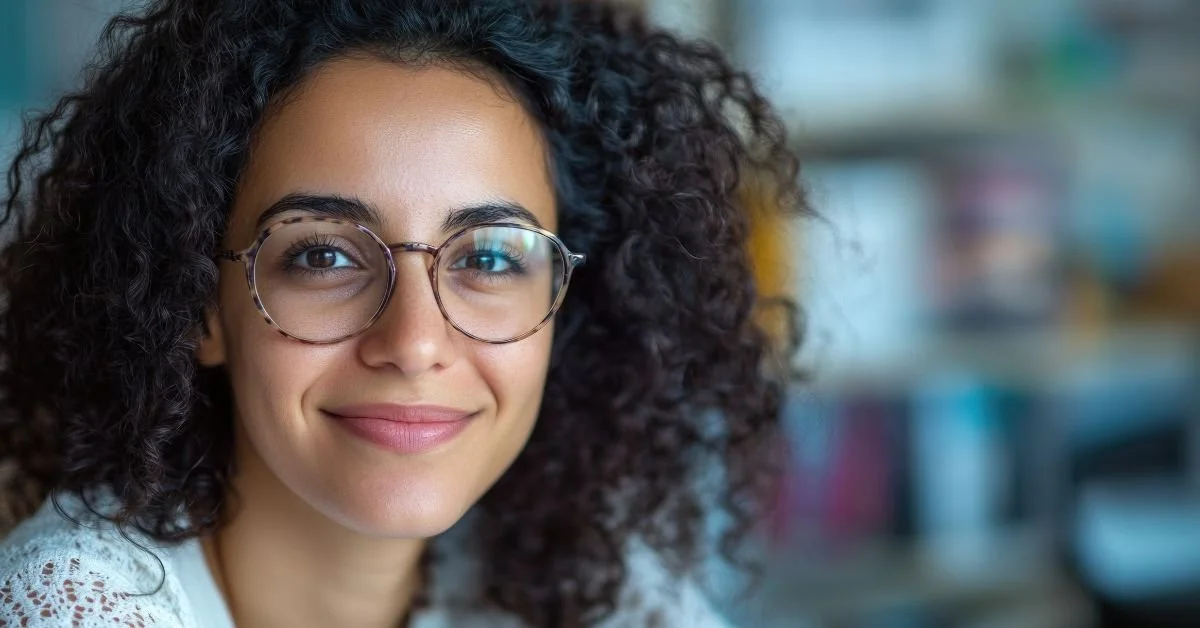Dry Eyes and Dehydration: What You Need to Know
Have you ever considered the connection between your daily water intake and the health of your eyes? Surprisingly, dehydration can play a significant role in causing and exacerbating dry eye symptoms. In this article, we'll explore the critical relationship between dehydration and dry eyes, how much water you should drink daily, the general risks of dehydration, common symptoms of dry eyes linked to inadequate hydration, and effective treatment options to soothe those uncomfortable dry eye symptoms.
Why is Water So Important?
Water is a fundamental component of our bodies, making up a significant percentage of our overall composition. On average, the human body is approximately 55-60% water. This vital fluid plays a crucial role in various bodily functions, including digestion, circulation, temperature regulation, and the lubrication of joints. Maintaining proper hydration is essential for overall health, as water is involved in nearly every physiological process within our bodies, emphasizing the critical importance of staying adequately hydrated for our well-being.
The Risks of Dehydration.
Dehydration can have far-reaching consequences beyond dry eyes. It can lead to headaches, fatigue, reduced cognitive function, and even kidney problems. Dehydration can also make us more susceptible to illnesses by lowering our immune response. But for our eyes, it can mean discomfort, irritation, and potential damage to the delicate ocular surface.
How Much Water Should I Drink Everyday?
General guidelines recommend that an average adult consume about 2 to 2.5 litres of water per day, roughly equivalent to eight 8x250mL glasses or 4x500 mL bottles. However, individual water needs can vary based on factors like age, sex, activity level, and climate.
Pay attention to your body's cues to gauge whether you're drinking enough water. Thirst is a natural indicator, but it's also essential to monitor the colour of your urine; ideally, it should be pale yellow. Dark yellow or amber urine can be a sign of dehydration.
Additionally, if you're in a hot climate, engaging in physical activity, or experiencing illness, you may need to increase your water intake to stay properly hydrated.
It's also not uncommon for our bodies to send mixed signals regarding thirst and hunger. Sometimes, when dehydrated, your body might interpret that sensation as hunger. This phenomenon occurs because the same part of the brain, the hypothalamus, controls both hunger and thirst cues, and these signals can occasionally get crossed. As a result, you may find yourself reaching for a snack when your body genuinely craves hydration.
It's a common misconception that beverages like coffee, soda (pop), and alcohol contribute to your daily water intake. While these drinks contain water, they can also act as diuretics, which may increase urine production and lead to dehydration rather than hydrating your body effectively. Caffeine, found in coffee and many sodas, is a known diuretic that can prompt increased fluid loss. Alcohol, too, can have a diuretic effect and lead to dehydration. While moderate consumption of these beverages is generally considered safe, it's important not to rely on them as your primary sources of hydration. Water and other non-caffeinated, non-alcoholic drinks remain the best choice for staying adequately hydrated and supporting overall health.
What Medical Conditions Can Increase Dehydration?
Several medical conditions can increase the risk of dehydration due to various factors, including increased fluid loss, impaired fluid intake, or underlying health issues. Some of these medical conditions include:
Diabetes: Both type 1 and type 2 diabetes can lead to increased urination (polyuria) and excessive thirst (polydipsia), contributing to dehydration.
Kidney Disease: Conditions that affect kidney function, such as chronic kidney disease, can impair the body's ability to regulate fluid balance and eliminate waste, leading to fluid retention or dehydration.
Gastrointestinal Disorders: Conditions like diarrhea, vomiting, and inflammatory bowel disease can result in significant fluid loss and electrolyte imbalances.
Fever and Infections: Illnesses that cause fever, sweating, and increased metabolic demands can lead to dehydration if fluid intake is not adjusted.
Heat-Related Illnesses: Heat exhaustion or heatstroke can result in severe dehydration due to excessive sweating and inadequate fluid replacement.
Cystic Fibrosis: This genetic condition affects the respiratory and digestive systems, leading to thicker mucus and increased salt loss through sweat, increasing the risk of dehydration.
Hyperthyroidism: An overactive thyroid can increase metabolism, leading to increased perspiration and fluid loss, contributing to dehydration.
Certain Medications: Some medications, including diuretics (water pills), laxatives, and antipsychotic drugs, can lead to increased fluid loss and dehydration as side effects.
Elderly Population: Aging can result in decreased thirst perception and a reduced ability to conserve water, making older adults more susceptible to dehydration.
Pregnancy and Breastfeeding: Pregnant and breastfeeding individuals may require increased fluid intake to support the physiological demands of their bodies.
Neurological Conditions: Conditions such as dementia or stroke can affect a person's ability to recognize thirst cues and maintain adequate fluid intake.
Eating Disorders: Conditions like anorexia nervosa and bulimia can lead to deliberate restriction of fluid intake, contributing to dehydration.
Symptoms of Dehydration-Related Dry Eyes
From an optometrist's perspective, it's essential to recognize the impact of dehydration on eye health, particularly its role in increasing the risk of dry eyes. When dehydrated, the body may prioritize essential functions over tear production, reducing tear volume and quality.
Dehydration can contribute to dry eye syndrome, resulting in symptoms such as:
Grittiness or a sensation of foreign particles in the eyes.
Burning or stinging sensations.
Redness and eye fatigue.
Blurry vision.
Excessive tearing (a counterintuitive response to dryness).
People who experience persistent dry eye symptoms should consider their overall hydration and consult their optometrist for a comprehensive evaluation and personalized recommendations to manage and alleviate dry eyes effectively.
How to Prevent Dry Eyes in the First Place
While staying hydrated is essential for eye health, there are additional steps you can take to help prevent dry eyes and maintain long-lasting comfort:
Use a humidifier: Dry indoor environments, especially during winter or in air-conditioned spaces, can reduce moisture in the air, leading to dry eyes. Running a humidifier helps maintain healthy humidity levels, keeping your eyes more comfortable throughout the day.
Follow the 20-20-20 rule: Prolonged screen time can reduce how often you blink, which contributes to dryness. To combat this, every 20 minutes, look at something 20 feet away for at least 20 seconds. This simple habit gives your eyes a break and encourages natural blinking.
Use preservative-free artificial tears: Over-the-counter lubricating eye drops can provide quick relief for dryness and irritation. Opt for preservative-free options, especially if you need to use them frequently, to avoid further eye irritation.
Incorporate omega-3s into your diet: Omega-3 fatty acids, found in foods like salmon, flaxseeds, and walnuts, may help improve tear quality and reduce inflammation. If considering omega-3 supplements, speak with your optometrist to ensure they’re right for you.
Protect your eyes from environmental triggers: Wind, smoke, and excessive sun exposure can dry out your eyes. Wearing sunglasses outdoors and using wraparound frames on windy days can shield your eyes from harsh elements.
Frequently Asked Questions
About Dry Eye
-
Yes, dehydration can lead to double vision, although it's not a direct cause. Double vision, also known as diplopia, occurs when the eyes cannot align correctly and coordinate their movements, resulting in the perception of two images of a single object. Dehydration can indirectly contribute to double vision by causing a range of visual disturbances, including:
Dry Eyes: Dehydration can lead to dry eyes, which can cause blurry vision and eye discomfort, making it challenging for the eyes to focus correctly.
Fatigue and Weakness: Dehydration can result in overall weakness and fatigue, including the eye muscles responsible for maintaining proper alignment and focus.
Electrolyte Imbalances: Severe dehydration can disrupt the balance of essential electrolytes like sodium and potassium, affecting nerve and muscle function and potentially leading to eye-muscle coordination issues.
-
Yes, dehydration can indeed make your eyes appear sunken or more deeply set. When dehydrated, your body tends to conserve fluids for essential functions, often at the expense of less critical areas, such as the tissues around the eyes. As a result, the skin around the eyes may lose its plumpness and appear sunken or hollow.
Additionally, dehydration can cause the eyes to look tired, dull, and less vibrant. It's essential to maintain proper hydration to support not only the health of your eyes but also your overall well-being, including the appearance of your skin and facial features.
-
Yes, dehydration can contribute to red eyes. When the body is dehydrated, it can affect various aspects of eye health, including the blood vessels in the eyes. Insufficient hydration can cause the blood vessels in the whites of the eyes (conjunctiva) to become more prominent and dilated because of eye strain and fatigue, resulting in bloodshot or red eyes.
-
Yes. Drinking a large amount of water over a relatively short period has been shown to increase your eye pressure temporarily. As such, people with glaucoma should try to smooth out their water intake over the day instead of drinking large quantities all at once.
Protect Your Eyes: Stay Hydrated
In the journey to maintain healthy, comfortable eyes, hydration plays a pivotal role. By ensuring that your body is adequately hydrated, you can significantly reduce the risk of experiencing the signs and symptoms of dry eye syndrome. Remember that prevention is key, and maintaining proper hydration is a proactive step toward keeping your eyes refreshed and your vision clear.
At Helio Optometry, we understand the importance of your eye health, and we're here to support you on your journey to optimal vision and comfort. If you're concerned about dry eyes or have questions about your eye health, we invite you to book an appointment with our dedicated team of optometrists. We'll provide personalized care and guidance to ensure your eyes stay hydrated and healthy for years. Don't wait; your vision deserves the best. Book your appointment with Helio Optometry today.













